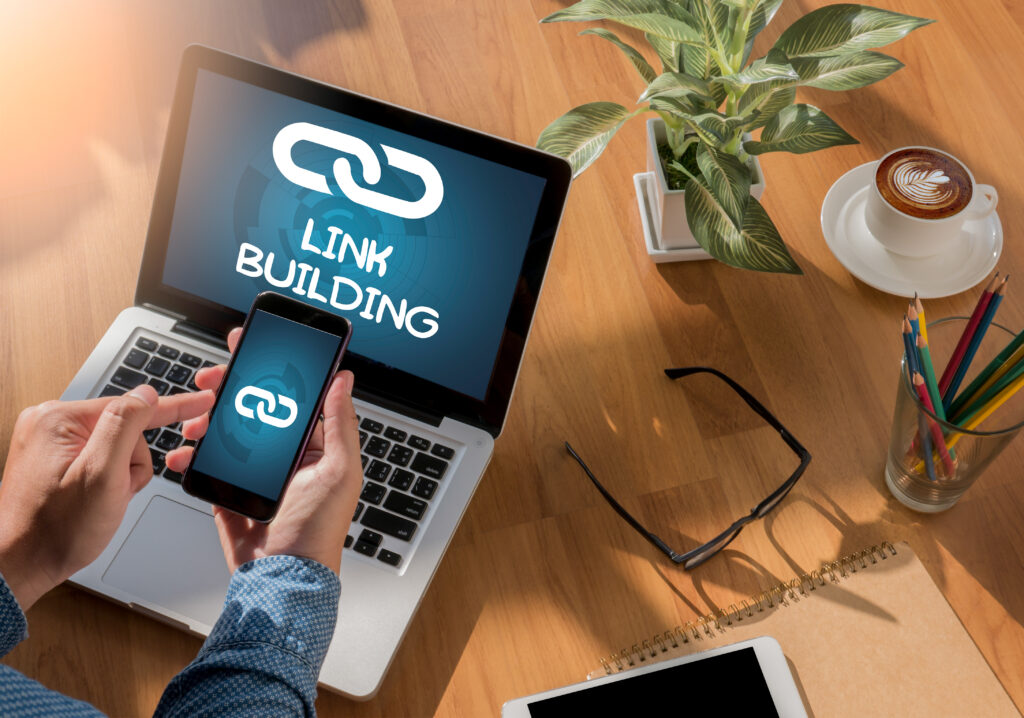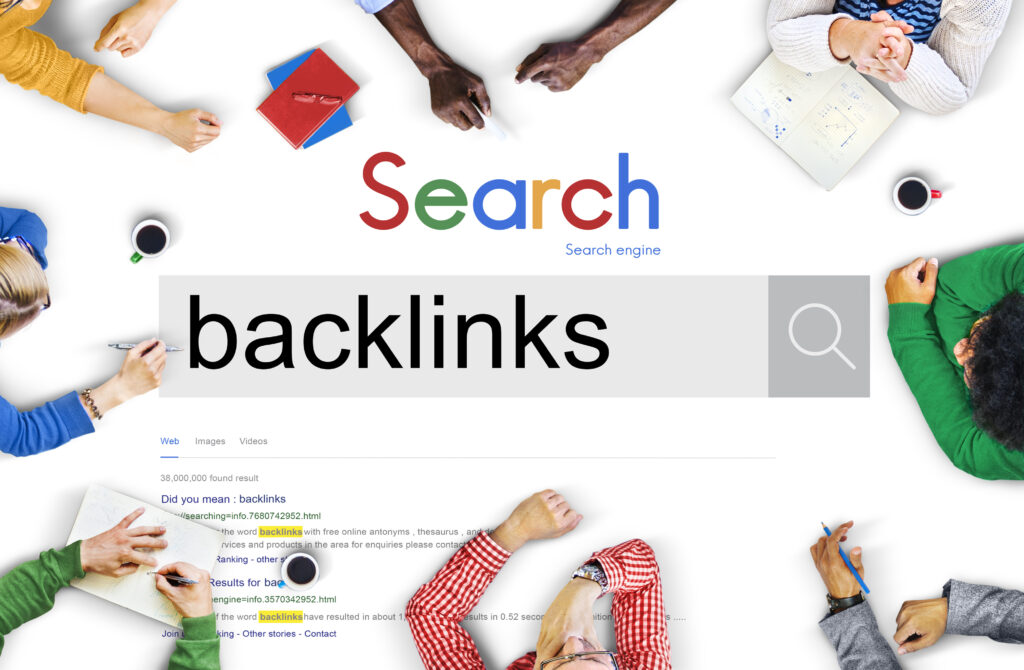Wondering how to get your website to the top of Google?
ePropel can show you how. We’re experts in search engine optimization (SEO) and link building, and we know what it takes to help your website rank higher than your competitors. We can help you build links that will improve your search engine visibility and increase traffic to your site.

All About Link Building to boost rankings.
Want more customers? Higher rankings mean more visitors, which means more business for you. Let ePropel show you how easy it is to get started! We’ll be happy to discuss our services with you and answer any questions you have. Contact us today for a free consultation!
Link Building for SEO
When it comes to SEO, link building is one of the most important aspects of improving your site’s ranking. By developing links from high-quality websites, you can help signal to search engines that you have valuable content and are worth ranking higher. In this post, we’ll discuss some of the best ways to build links for SEO purposes. We’ll also look at some common mistakes to avoid when link building. So, whether you’re just starting out in SEO or you’re looking for ways to improve your link-building strategy, this post is for you!
Effective Link-Building Strategies for Beginners
The process of determining how to get other sites, blogs, or webpages to rank your website higher in Google searches is known as link-building. You can use different types of links depending on the target audience you want to link back to, and when it comes time to create a promotion strategy, keep these six things in mind:
1. The type/quality ratio – this should be high enough without being overbearing so that people don’t think the item was put up with spammy intent (i e too many external sources).
2. Remember both the time frame and the promotion strategy – If someone wants quick but temporary results, doing some light Qatar SEO may be the best option, whereas, for more evergreen needs, a longer and more sustainable approach should be used.
3. The target audience – who would benefit from these links? Is a specific age group, geographic location, or income bracket being targeted? Knowing this helps to determine the style of the links.
4. Niche/Market – Knowing the target market again aids in determining the type of links that will work well. More general link-building may not be as effective in a very small, specific niche, and vice versa.
5. SEO keywords – Using the correct ones in the anchor text (the linked words/phrases on your site) is critical for Google to understand what the page is about and rank it appropriately.
6. Competitors – how many other websites are competing for the same keywords? If there are already a lot of results, it will be more difficult to break through and get noticed, but it is not impossible.
Link-building can be a powerful way to improve search engine ranking when these six factors are considered.
Types of Links for SEO
There are three primary kinds of links that are important for SEO:
1. Inbound links
Inbound links (incoming links) are also known as backlinks. These are links that come from other websites and point to your website. Backlinks are important because they show search engines that your website is popular and relevant. The more inbound links you have, the higher your website will rank in search engine results pages (SERPs).
2. Outbound links
Outbound links are links that point from your website to another website. Outbound links are important for two reasons. First, they show search engines that your website is connected to other websites. This helps to improve your website’s ranking. Second, outbound links can help to improve the credibility of your website. If you link to high-quality, relevant websites, it will show search engines that your website is credible as well.
3. Internal links
Internal links are links that point from one page on your website to another page on your website. Internal links are important for two reasons. First, they help search engines to index your website. If you have a well-structured website with clear navigation, it will be easier for search engines to index all of your pages. Second, internal links can help to improve the user experience on your website. If users can easily navigate your website, they are more likely to stay on your website and visit multiple pages.
Which Type of Link is Most Important for SEO?
Inbound links are the most important type of link for SEO. Backlinks show search engines that your website is popular and relevant, which will help to improve your website’s ranking in search engine results pages. Outbound links and internal links are also important, but they are not as important as inbound links.
How to Create Backlinks
One of the most important aspects of SEO is building backlinks. Backlinks are links from other websites to your website. Search engines use backlinks as a way to determine how popular and relevant your website is. The more backlinks you have, the higher your website will rank in search engine results pages (SERPs).

Learn more about backlinking strategies.
Building backlinks can be a daunting task, but there are a few simple methods you can use to get started.
1. Create a great piece of content. This is the single most important thing you can do when it comes to building backlinks. If your content is informative, interesting, and well-written, other prominent websites will be more likely to link to it.
2. Reach out to other websites. Once you’ve created some high-quality content, reach out to other websites in your industry and let them know about it. Most website owners are happy to share quality content with their readers. A very important outreach tip is to create compelling content that website owners would want to check out, instead of just asking them directly to link to you.
3. Use social media. Social media is a great way to promote your content and build backlinks. When you share your content on social media, be sure to include a link back to your website.
Heads up: It’s important to claim your brand name on social media as soon as possible (Twitter, YouTube, SlideShare, Instagram, and so on). If your brand becomes popular, you don’t want squatters taking advantage of it. Social media is a great way to build a following and promote your business. However, actual links from social media profile pages have little to no direct SEO value. So don’t expect a ranking boost after joining dozens of social networks.
4. Submit your website to directories. There are many online directories that list websites in different categories. Submitting your website to these directories can help you get backlinks from high-quality websites.
5. Create an XML sitemap. An XML sitemap is a file that lists all of the pages on your website. You can submit your XML sitemap to search engines, which will help them index your website and all of its content.
6. Blog Comments. If you’re looking to start a relationship with someone through their blog, leave a meaningful comment that adds to the conversation. A link to your website might be helpful down the line, but if that’s your only goal, blog owners will quickly catch on and you’ll be blacklisted. Keep in mind as well that links from blog comments are usually no-followed, so they may not have the same impact as other types of links.
Building backlinks takes time and effort, but it’s an important part of SEO. By using the link-building strategy described above, you can start building backlinks and improve your website’s ranking on SERPs. search engine results in pages.
What is the Difference Between Backlink and Link Building?
Backlinks are links that point to your website from another site. Link building is the process of acquiring backlinks to your website with the goal of improving your site’s search engine ranking. While backlinks are an important part of SEO, it’s important to remember that not all backlinks are equal. To be effective, a link-building strategy should focus on acquiring high-quality, relevant backlinks from reputable websites.
Additionally, your link-building efforts should be ongoing, as it takes time to build up a strong backlink profile. Finally, keep in mind that link building is just one part of a comprehensive SEO strategy; other important factors include on-page optimization, content marketing, and social media engagement.
Why Link Building Campaign is Important for SEO
Link building is one of the most important aspects of SEO, and it is a process that involves acquiring links from other websites to your own. The more links you have pointing to your website, the higher your site will rank in search engine results pages (SERPs), and the more traffic you will get.

Learn the Benefits of a Linkbuilding campaign for your online business.
There are many benefits to link building, including:
- Improved search engine rankings: As mentioned above, the more links you have pointing to your website, the higher your site will rank in SERPs. This is because links are one of the major ranking factors used by search engines like Google.
- Increased website traffic: More links mean more people will be able to find your website, and this can lead to increased traffic.
- Improved brand visibility and awareness: If you have links from high-quality websites, this can improve your brand visibility and awareness. People will see that your website is being endorsed by other websites, and this can make them more likely to visit your site.
- Improved social media engagement: If you have links from popular social media sites, this can lead to increased engagement on your social media pages. More people will see and click on your links, and this can help you to build a following and grow your business.
Link building is an important part of SEO, and it can be a great way to improve your search engine rankings, increase website traffic, and improve your brand visibility.
Link building is an essential part of any SEO strategy, and it is a process that involves acquiring links from other websites to your own. The more links you have pointing to your website, the higher your site will rank in search engine results pages (SERPs), and the more traffic you will get. ePropel can help you build high-quality links that will improve your SEO and drive traffic to your website. Contact us today to learn more about our link-building services and how we can help you achieve success online.
Mistakes to Avoid When Backlinking
When building backlinks, it’s important to avoid common mistakes that can lead to search engine penalties. Here are some of the most common backlink mistakes to avoid:
1. Buying or selling links. This is a big no-no in the eyes of Google and other search engines. If you’re caught doing this, you could be hit with a severe penalty that can tank your rankings.
2. Linking to spammy or low-quality websites. If you’re linking to sites that are filled with spam or low-quality content, it reflects badly on you and can hurt your rankings. Stick to linking to high-quality sites and focus on links from sites that are in the same niche as your site in order to generate more traffic.
3. Using link farms or other shady link-building tactics. Link farms are groups of websites that all link to each other in an attempt to artificially inflate their link popularity. This is a big no-no in the eyes of search engines, and you could be penalized if you’re caught using them.
4. Overdoing it with anchor text. If all of your links use the same exact anchor text, it looks unnatural and can get you in trouble. Mix up your anchor text and use a variety of different keywords.
5. Links from untrustworthy websites. If you’re getting links from websites that are known to be untrustworthy or have a bad reputation, it could hurt your own reputation. Only link to websites that you trust.
Avoiding these common mistakes will help you stay in good standing with the search engines and avoid any penalties that could hurt your rankings. focus on building high-quality backlinks from reputable websites to help improve your chances of ranking well.
What Constitutes a Good Link?
There are many factors that contribute to a good link. Here are some of the most important:
1. Relevance
The first and most important factor is relevance. A link must be relevant to the topic of your website or blog in order to be valuable. If it isn’t, then it will likely be ignored by search engines and visitors alike.
2. Authority
Another important factor is authority. A link from a high-quality website that is well-established and has a good reputation will be much more valuable than a link from a lesser-known site.
Types of Authority:
- Page Authority – A link from a page with a high PageRank. This reverts to Google’s original PageRank algorithm which is – the page with the most links pointing to it receives a stronger vote. Instead of hunting for old pages with strong backlink profiles, seek links from notable pages that are likely to attract backlinks over time.
- Website Authority – A link from a website with a high Domain Authority.
3. Anchor text
The anchor text, or the text that is linked to it, is also important. The anchor text should be descriptive and relevant to the target page.
4. Location
The location of the link is also a factor. Links that are placed in the body of an article or blog post are usually more valuable than those that are in the sidebar or footer.
5. Nofollow/dofollow
The final factor to consider is whether the link is a no follow or a do-follow link. Dofollow links are the most valuable, as they pass along link juice and help improve your website’s search engine optimization. Nofollow links, on the other hand, do not pass along any link juice and are typically used for sponsored links or paid advertisements.
6. Destination
When it comes to ranking your website pages, there are three key types of links you can focus on:
-Your homepage
-Your linkable assets (pages with valuable information that others will want to link to)
-The pages you actually need to rank high in Google.
However, the latter pages are often the most difficult to earn links to. That’s because people are more likely to link to information pages where their audience can get value for free, rather than commercial pages where readers are likely to part ways with their money.
Everyone agrees that internal linking is a powerful tool to help “boring pages” rank better.
In other words, build as many links as you can to your linkable assets and funnel all that “link juice” towards the pages you want to rank via internal links. Keep in mind that factors like placement, relevance, and anchor text also affect the value of your internal links.
When considering these factors, it’s important to keep in mind that not all links are created equal. A link from a high-quality, relevant website is going to be much more valuable than a link from a low-quality site. Therefore, it’s important to focus on quality over quantity when building links to your website.
What is a Broken Link?
A broken link is a link on a website that no longer works. When you click on a broken link, you will be taken to an error page. There are many reasons why a link may become broken, including changes to the website’s structure, changes to the page’s URL, or the page being removed altogether.

Learn more about the broken link strategies.
Broken links can be frustrating for website visitors, and can also negatively impact a website’s search engine optimization (SEO). To avoid broken links on your website, it is important to regularly check for broken links and update or remove them as necessary.
How does the broken link-building process work?
The process of broken link strategy is simple:
1. Find relevant websites that have links to your competitors, but not to your website.
2. Reach out to the webmaster and let them know that their link is broken, and offer them a replacement link to your website.
3. If they accept, their link will now point to your website instead of their competitor’s.
This process can be time-consuming, but it’s a great way to get high-quality links from websites that are relevant to your industry. Plus, since you’re only targeting websites that already have links to your competitors, you know that they’re likely to be open to linking to you as well.
Effective Link Building Tools for SEO
There are many different types of link-building tools available for SEO purposes. Some of the most popular and effective ones include:

The tools to use in link building strategies.
1. Google Alerts: This is a free tool offered by Google that allows you to monitor the web for specific keywords or phrases. You can then be notified whenever new content containing those keywords is published.
2. Moz Rank Tracker: This is a paid tool that allows you to track your website’s link popularity and compare it to your competitors.
3. Link Research Tools: This is another paid tool that provides a comprehensive suite of link-building and analysis features.
4. BuzzStream: This is a tool that helps you manage and automate your link-building efforts. It also includes features for monitoring your progress and analyzing your link-building campaigns.
5. Open Site Explorer: This is a free tool from Moz that allows you to see detailed information about any website’s backlink profile.
3. Ahrefs Site Explorer: This is another paid link-building tool that provides similar features to Open Site Explorer.
6. Majestic SEO: This is a paid link-building tool that offers comprehensive link analysis and backlink tracking features.
7. Raven Tools: This is an all-in-one marketing platform that includes a link-building module with several powerful features.
8. SEMrush Link Building Toolkit: This is a paid tool that includes several link-building features, such as a backlink checker and an analysis tool.
9. Linkdex: This is a paid tool that provides a suite of link-building and analysis features.
10. SEOmoz: This is another all-in-one marketing platform that includes a link-building module with several powerful features.
These are just a few of the many link-building tools available. There are many others out there, so be sure to do your research to find the ones that best fit your needs.
When it comes to link building, it’s important to focus on quality over quantity. It’s better to have a few high-quality links than a large number of low-quality ones. So, when you’re choosing link-building tools, be sure to choose ones that will help you build high-quality links.
In general, the best way to build high-quality links is to create great content that people will want to link to. But there are also a number of other link-building tactics you can use, such as guest blogging, infographics, and social media outreach.
No matter what link-building tactics you use, the most important thing is to focus on quality. If you build a large number of low-quality links, it will damage your website’s reputation and could even get you penalized by Google. So, always keep quality in mind when link building.
One final note
Your website’s link profile is important for SEO. Google cares more about user experience than backlinks. Be smart and strategic with blogging, social media, SEO, and link-building. Earning quality, natural links is more difficult than link building. Because quality, not quantity, of links matters now.
Follow these link-building strategies to create a blog that users and Google will love.
Call us right now! Let our SEO Professionals and experts discuss the link.